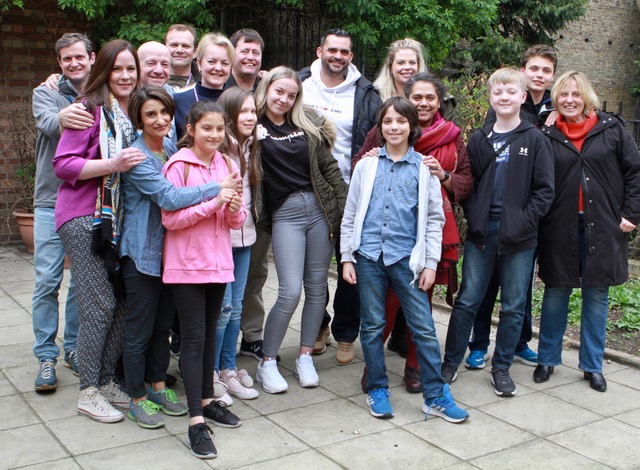
Why do I stammer?
Most of the information that we have about why people stammer comes from looking at what is happening with adults. But kids are different!
Researchers are only just starting to look at what is happening with kids. There is a lot more for us to learn but here are some things that everyone pretty much agrees with:
How the brain works
Everything that we do has got something to do with how our brains work! How people move about, or ride a bike or write their names or talk. It all comes back to the brain. How much do you know about your brain?
Lots of different parts of the brain need to work together when we speak.
Grown ups who stammer have very slightly different ‘wiring’ in their brains (not actual wiring) and so the different parts of their brain may not work together quite so well. There are even some tiny differences in how some bits of the brain look. Scientists have found this out by taking really good pictures of brains using a brain imaging machine (or scanner).
They have found the same sort of thing with kids who stammer who were only 3 years old! Can you imagine having to lie really really still while the scanner takes pictures of your brain? It takes a bit of practice!
One thing that scientists have discovered about the human brain is that the bits of it that we use get stronger (a bit like muscles getting stronger when we use them). This is called plasticity and it means that our brains can actually change!
Genetics
Genetics means the way that some things (like what colour eyes you have) are passed down, or inherited, from a person to their children. If someone else in your family stammers, or used to stammer, that helps to explain why you do – it has been passed down. Do you have someone in your family like a parent, aunt, uncle, grandparent or cousin who stammers or who used to stammer? If you’re not sure, try asking someone and see what you can find out!
Scientists haven’t found out exactly which genes are involved in stammering yet and they’re pretty sure it’s more than one.
But it’s not all about genetics. There are other things that can have a role to play, for example:
How fast people can manage talking
Have you ever thought about how you speak and how many tiny movements you need to make to say even one word? Try saying something out loud and notice what moves where as you say it. Scientists have found that grown ups who stammer are generally not so good at talking fast – they can’t make all the movements for talking as quickly as people who don’t stammer. This might be the same with kids who stammer as well. Their mouths can’t quite keep up if they try to go too fast. If you’re trying to speak quickly that might make it more likely that you stammer.
Organising what you want to say
Some people need a bit more time to think of what they want to say or organise their ideas and sentences. Do you ever find it hard to think of the word you want? Children mostly stammer more when they are saying something longer and more complicated and it’s probably because there is more to get organised. If you need a bit more time to think but don’t give yourself enough time, or if other people rush you, this might mean that you stammer more.
The kind of person you are
Human beings are different from each other in lots of ways. One of these is the kind of personality that people have. Scientists are interested to know more about whether personality makes a difference with stammering, and whether emotions and stammering are linked.
It’s probably harder having a stammer if you get really worried, frustrated or anxious about it, if you usually try super hard to get things perfect and hate making mistakes, or if you give yourself a hard time about things.
Maybe you find that you stammer more if you’re worried about speaking, or just worried about other stuff. That’s natural. All human beings find that their emotions affect their speech but that might be especially so if you have a stammer.

If you feel like this about your stammer it’s important to tell someone how you are feeling.
Day-to-day stuff that makes a difference
The kind of situation you are in probably makes a difference (like where you are or who you’re talking to). Kids tell us that things like talking in front of lots of people, feeling hurried, or speaking to someone they don’t know can make it harder. Other things that might make a difference are how tired you are or just how you’re feeling on the day.
Key things to remember
- stammering is passed down through families (it’s inherited) but it can also happen when there is no one else in the family who stammers
- people who stammer have tiny differences in the way their brains work for speaking
- speaking very quickly is usually trickier for someone who stammers
- sometimes people who stammer need more time to think of what they want to say
- big emotions like anxiety or worry can make it harder
- some situations are just harder anyway – maybe because there’s lots of people, or people you don’t know
- you can get help!


Sometimes you just need someone to talk to


Sometimes you just need someone to talk to
Our Helpline, 020 3316 8100, is open during office hours (9am-5pm) and voicemail messages can be left when the office is closed.
“I don’t feel alone now. I have been listened to and honestly feel like my child will benefit going forward.”
Become a Friend
Receive emails with news and information about the Centre's work, events, and fundraising.
Sign up